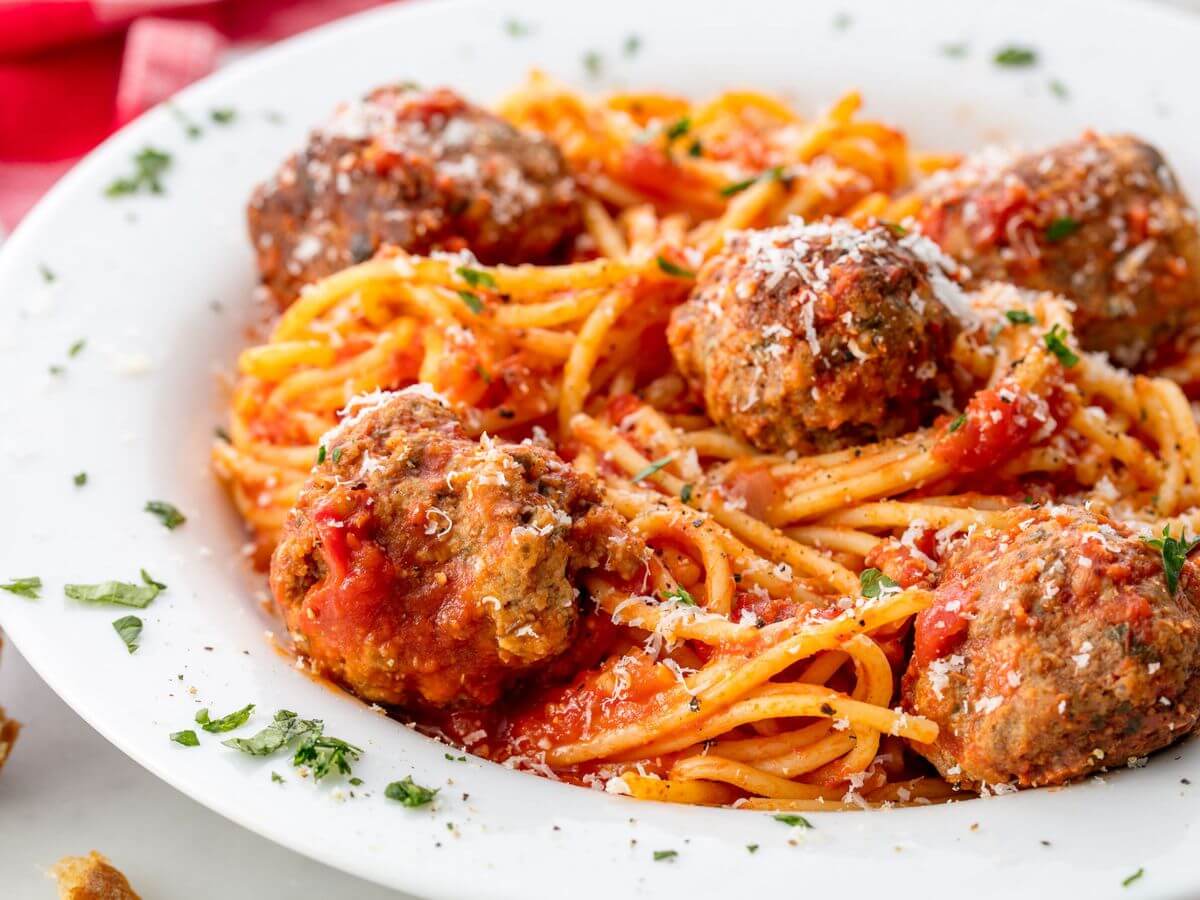”It is not down in any map;
Herman MelvilleMoby Dick
true places never are.
When I was four years old, we moved to the same Brooklyn block where my father had been raised and where my grandfather still lived. That worked out well for me, because I guess you could say I was a “willful” child. If I didn’t get my way at home, I would often pack my one favorite pillow in a suitcase and drag it eight doors down the block to my grandfather’s house. Pop would take me in for a few hours and we would hang out in his pungent-smelling kitchen where one sauce or another was always simmering, until my father came and dragged me home.
__________
Making meatballs, sausages, and (sometimes) a rolled, stuffed round steak called braciole was an art form, the mastery of which Italian men considered a badge of courage because of the sheer time and effort it took to complete the dish from start to finish. If Mama cooked three-course meals the remaining six days a week, it barely registered, but if the husband could manage the Sunday feast, that was all anyone talked about.
Pop worked so slowly and laboriously that he was my perfect first teacher. After Dad bought the big house in Greenwich, Connecticut, Pop stayed with us for the holidays and for most of the summer. The recipe was never written down, so when I took over the Sunday ritual, I continued to perfect what I had first learned in Pop’s little kitchen in Flatbush.
__________
If there were two opposites in my family, they were my father and his own father. My grandfather, Pop, was a constant presence in our Connecticut house as I grew into manhood. He’d arrive for months on end in the winter and summer and we’d shoot pool, play gin rummy, or split cord upon cord of wood for the fireplaces once winter arrived, which I tended while my father spent much of his life in court. I loved the challenge of keeping four fires ablaze at the same time for much of the night.
Pop was also the first person to teach me in earnest how to operate in a kitchen, starting with breakfast food and basic pastas, until we moved to the Mother of All Guinea Sauces: MEATBALLS AND SAUSAGES.
Pop was a large man who had started working for his own parents in the maelstrom of the longshoreman’s restaurant where the Scotto ancestors frequented. He was a rough character as a young man who softened with age. I was the beneficiary of Pop’s older, mellower self, which had not been the case in my father’s youth. Dad rarely, if ever, spoke about it. Jimmy once let slip that he and Pop had an argument when Dad returned from Korea. Pop had gone off and backhanded him as he stood in the living room, dressed in his Marine Corps officer’s uniform. It was, perhaps, the only time my father let on the true nature of his own relationship with his father, which seemed borne from the ashes of a foreign civilization I could not begin to fathom.
Whatever thoughtless things Dad had suffered at Pop’s hands were no longer an emotional influence on my father. If he dwelled on anything, it was his beloved mother, who believed in him without qualification but never lived to see his significant accomplishments.
Even so, thanks in large part to my many hours with Pop, the universe, again, made its grand shift twenty-five years after Pop died, enabling Jimmy and I to make up for lost time. We played gin rummy for hours and sat around for half the night cooking in our Manhattan Beach kitchen, ensuring that the recipe for meatballs and sausages survived into the next generation.
__________
“You know,” I said to Gianni as I held tightly to his shoulders, “I think it’s time I taught you and your sisters my grandfather’s recipe for meatballs and sausages.”
I could see a huge smile cross his face. He’d been asking me for the recipe for years. It had never been written down. “If you want to learn, you have to watch over and over again until you understand it like a second skin.”
“I hope you live long enough to teach me,” Gianni cracked wise, giving me the business. He had been so worried about me that it was good to hear a little irreverence in his voice.
“Well, son, you never really know what the future will bring. But I wouldn’t bet against me. A lot of guys lost their shirts betting against your grandfather.”
“I know, Dad,” Gianni started, and then recited my mantra. “You just can’t help it if you’re lucky.”
I chuckled. “You just might be ready after all, my boy.”
He slowed his pace and turned toward me as if I was about to spill the secret of a lifetime, like where Jimmy Hoffa was buried.
“Ready? For what?” he blurted out excitedly.
“For the meatballs, meathead! Take it easy; one thing at a time . . . one thing at a time.”
